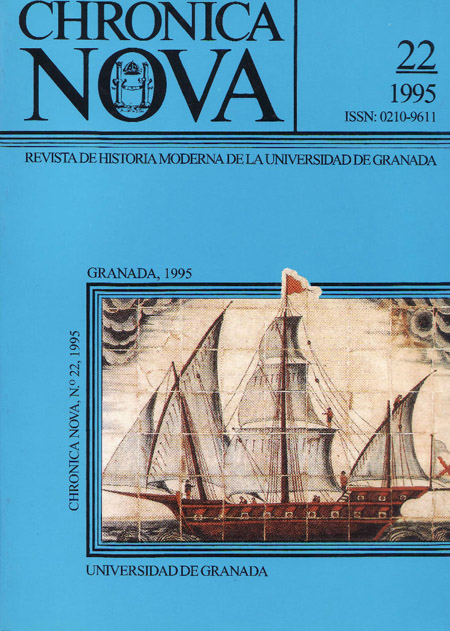Alcabalas revenue in east Venezuela: a duel between the institutional power and the taxpayers
DOI:
https://doi.org/10.30827/cn.v0i22.2134Keywords:
Royal Finance, East Venezuela, XVIII century, Alcabalas, Economy, FiscalityAbstract
This article analizes how a tax of medieval origin was not established in one of the Spanish empire’s marginal areas until a date as late as 1725-33. Similar to what happened in other indian territories, the establishment of this tax caused important complaints from the people who considered it an excesive, unfair and discriminatory tax meant aproximately 7% of the Treasury anual income, an importan quantity it considering that between 50 and 60% were foreing incomes, the amount collected wasn’t very strong because of the numerous irregularities comitted during the fiscal process. The tribute was identified with the metropolitan domination and during the Independence process its abolition turned into a flag againts Spain, until its final abolition in 1830.
Downloads
Downloads
How to Cite
Issue
Section
License
Nuestra revista se atiene a las recomendaciones para la implementación del Artículo 37 Difusión en Acceso Abierto de la Ley de la Ciencia, la Tecnología y la Innovación:
- Los/as autores/as cuyas contribuciones sean aceptadas para su publicación en esta revista conservarán el derecho no exclusivo de utilizar sus contribuciones con fines académicos, de investigación y educativos, incluyendo el auto-archivo o depósito de los artículos aceptados en repositorios institucionales o temáticos de acceso abierto de cualquier tipo en un plazo máximo de seis meses.
- Preferiblemente se permitirá el uso de la versión publicada de las contribuciones científicas, que estarán accesibles en abierto tan pronto como sea posible.
-
Que en caso de que el trabajo sea aprobado para su publicación, el/la autor/a autoriza de manera ilimitada en el tiempo a la entidad editora para que incluya dicho texto en Chronica Nova y pueda reproducirlo, editarlo, distribuirlo, exhibirlo y comunicarlo en el país y en el extranjero por medios impresos, electrónicos, CD, Internet o cualquier otro medio conocido o por conocer.






 ISSN-e: 2445-1908
ISSN-e: 2445-1908










